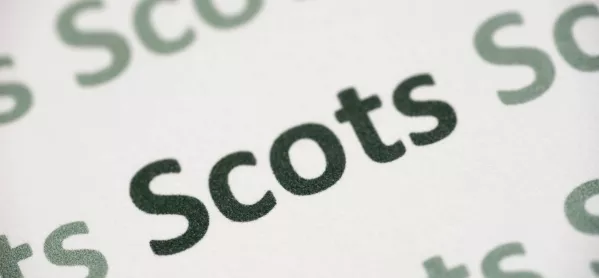Student Len Pennie - better known online as Miss Punny Pennie - has become an internet star with videos that share a Scots language word of the day. One of her most popular videos, in which she recites her poem I’m No Havin’ Children (see below), has been viewed nearly 250,000 times on Twitter.
Using Scots language in schools
Here are her four top tips for using Scots in school:
1. Scots is a language - a modern language
The Scots language is one that has evolved and changed throughout the years. The temptation when approaching Scots is to look towards the past, to writers such as Robert Burns, and while this is invariably an invaluable source of information, the Scots spoken in Burns’ day does not reflect the Scots spoken in a modern Scotland. When teaching Scots, try to find modern resources that your students can engage with on the same level they would English or any other modern language. Many books have been translated into Scots, such as The Itchy Coo Book o Hans Christian Andersen’s Fairy Tales in Scots.
Related: The importance of using Scots language in the classroom
Scots language: A lesson for teachers from the Scots Wikipedia page
Opinion: ‘Scots language should be part of everyday teaching’
Long read: Why learning Scots is having a moment
2. Scots means different things to different people
For some people, Scots is a few words taught to them by their parents or grandparents and only makes up a wee bit of their vocabulary. For other people, Scots forms the basis of their entire lexicon, shaping the way they speak and engage with language. Gatekeeping the Scots language is counterproductive, as it is important to encourage children at every level and to make it clear that, regardless of nationality or background, anyone can learn and speak Scots.
Here’s a poyum, in Scots, about Scots. It’s called ‘I’m no havin’ children’ and it’s for ma wee mammy. X pic.twitter.com/0EEtc8PUTm
- ¤ Miss PunnyPennie ¤ (@Lenniesaurus) October 9, 2020
3. Scots is one language, but with many facets
The Scots language is comprised of many varying dialects, such as Doric and Ulster Scots. Words, phrases, pronunciation and even spelling can vary from region to region, so it is important to acknowledge this when engaging with the Scots language. A good example is the word “wean”, which means “child”. Spelling variations can include “wain” and “wane”, and a different word entirely, “bairn”, is used in some parts of the country to mean the same thing. Try to research regional variations, if possible - and make it clear that spelling is a lot less important than communication and conveying meaning.
4. Scots should be fun
Children should feel encouraged to speak Scots as, all too often, the stigma surrounding the language leads to negative experiences from an early age within a school context. So it is important to ensure that children feel reassured. Games, songs, poetry and stories can help with the expansion of vocabulary, but, more importantly, they can also create a positive and welcoming atmosphere that is conducive to effective language acquisition.
Len Pennie is a University of St Andrews student of Spanish who shares videos about Scots language, including words of the day. She tweets @Lenniesaurus

